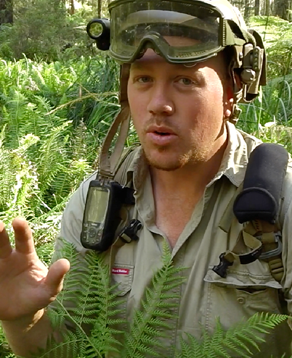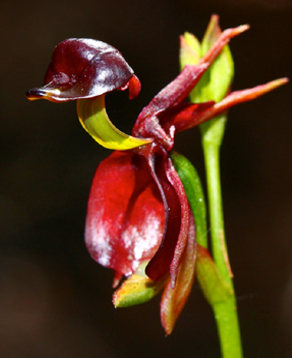<< BACK TO PROJECT LIST
Project: 313/2017
Title: The Orchid Guardian Project
Applicant: Julian Pitcher
The Orchid Guardian project is about inspiring, educating and utilising Orchid enthusiasts to stabilise wild populations of Orchids.
This will be achieved by producing various unique high impact films to be used on websites, social media and at community meetings / workshops. Additionally, a data collection component will aid stakeholders and Orchid monitoring in the future.
These films will initially centre around promoting “Wild Orchid Watch”, an online service currently in its infancy which will aid in identifying, cataloguing and monitoring wild Orchid populations.
A short series for the ANOS (Vic group) schools program will also be developed. This will provide a visual aid for students to understand propagation methods before undertaking them and also see a variety of field scenes they may otherwise miss out on.
A third film “Orchid Oasis” will be produced on an island (TBC) and will largely be a mapping program to collect data for stakeholders, identifying and aiding in the future monitoring of negative impacts on an isolated or confined environment. This will be an adventurous film designed to promote natural beauties again inspiring enthusiasts and promoting conservation.
Lastly a continuation of the online series “Orchid Hunters Australia” and “Kids for Orchids” will come into play and again demonstrate to the online audience the beauty of Australia’s natural wonders and the importance of managing them appropriately.
These films will use a particular approach to achieve their outcomes. Humour, technology, adventure and of course natural values of all sorts to connect with the viewer.
The Orchid Guardian project derives its name from the concept that those who regularly visit reserves and alike, enjoying even a casual relationship with Orchids can support their conservation and be an “Orchid Guardian” with six simple actions:
- Avoiding trampling of terrestrials
- Remounting fallen epiphytes in suitable habitat
- Report found populations to relevant authorities
- Report negative impacts to relevant authorities
- Report suspicious behaviour to relevant authorities
- Support local nurseries when purchasing native Orchids
These points revolve around working smarter not harder and an increase in communication. Keeping it easy for the average enthusiast.
If an individual wishes to take a more hands on approach to Orchid management there are numerous templates available designed to aid in the development of a management plan and assist existing management groups or to start a new one in any given area.


